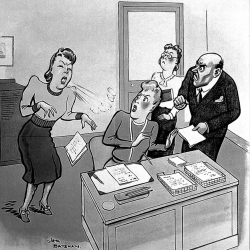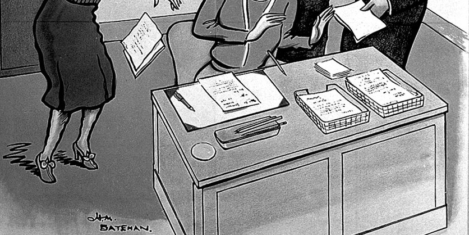To provide the best experiences, we use technologies like cookies to store and/or access device information. Consenting to these technologies will allow us to process data such as browsing behaviour or unique IDs on this site. Not consenting or withdrawing consent, may adversely affect certain features and functions.
The technical storage or access is strictly necessary for the legitimate purpose of enabling the use of a specific service explicitly requested by the subscriber or user, or for the sole purpose of carrying out the transmission of a communication over an electronic communications network.
The technical storage or access is necessary for the legitimate purpose of storing preferences that are not requested by the subscriber or user.
The technical storage or access that is used exclusively for statistical purposes.
The technical storage or access that is used exclusively for anonymous statistical purposes. Without a subpoena, voluntary compliance on the part of your Internet Service Provider, or additional records from a third party, information stored or retrieved for this purpose alone cannot usually be used to identify you.
The technical storage or access is required to create user profiles to send advertising, or to track the user on a website or across several websites for similar marketing purposes.
 Over the last 12 months, seven in 10 UK business leaders witnessed presenteeism, where someone come into the office when they are unwell, a survey has claimed. The issue is particularly prevalent at certain times of the year, recruitment firm Robert Half suggested, with 71 percent of respondents considering that presenteeism increases during the winter months when colds, flu and other respiratory illnesses are more common.
Over the last 12 months, seven in 10 UK business leaders witnessed presenteeism, where someone come into the office when they are unwell, a survey has claimed. The issue is particularly prevalent at certain times of the year, recruitment firm Robert Half suggested, with 71 percent of respondents considering that presenteeism increases during the winter months when colds, flu and other respiratory illnesses are more common.






 Freelancers value the freedom and flexibility of being their own boss but their happiness is most closely correlated with how much money they earn, a survey of 7,000 freelancers has claimed. According to the
Freelancers value the freedom and flexibility of being their own boss but their happiness is most closely correlated with how much money they earn, a survey of 7,000 freelancers has claimed. According to the 


 Some 47 percent of employees who care for both children and elderly relatives (sandwich carers) are keeping these responsibilities hidden from their employer, a survey from
Some 47 percent of employees who care for both children and elderly relatives (sandwich carers) are keeping these responsibilities hidden from their employer, a survey from 
 Two surveys have highlighted continuing fears among freelancers about the changes to the IR35 rules due to take effect in April. The reforms will shift the responsibility for defining contractors’ tax status from the individual to the employer to crack down on so-called ‘disguised employment’, where off-payroll workers are able to pay less tax than employees. However, concerns have been raised that the rules could force organisations to bring genuine contractors and freelancers on to the payroll, reducing flexibility for both parties.
Two surveys have highlighted continuing fears among freelancers about the changes to the IR35 rules due to take effect in April. The reforms will shift the responsibility for defining contractors’ tax status from the individual to the employer to crack down on so-called ‘disguised employment’, where off-payroll workers are able to pay less tax than employees. However, concerns have been raised that the rules could force organisations to bring genuine contractors and freelancers on to the payroll, reducing flexibility for both parties. 


 Policy makers should resist claims by Uber that its drivers fall into a middle ground between traditional employees and independent contractors, a new study says. The research report,
Policy makers should resist claims by Uber that its drivers fall into a middle ground between traditional employees and independent contractors, a new study says. The research report, 


 Policy makers should beware of classifying all gig economy workers as “employees”, a new research report has claimed. Such workers vary in age, income and education in a similar way to the traditional workforce and crafting regulations that treat both fully committed and occasional gig workers as one group is unlikely to be an efficient solution, the
Policy makers should beware of classifying all gig economy workers as “employees”, a new research report has claimed. Such workers vary in age, income and education in a similar way to the traditional workforce and crafting regulations that treat both fully committed and occasional gig workers as one group is unlikely to be an efficient solution, the 
 Many companies are moving away from long-term overseas placements in favour of short-term transfers, a report has suggested. To reduce costs and meet changing business and worker needs, firms are shifting from typical transfers of one to three years to moves of around three to 12 months,
Many companies are moving away from long-term overseas placements in favour of short-term transfers, a report has suggested. To reduce costs and meet changing business and worker needs, firms are shifting from typical transfers of one to three years to moves of around three to 12 months, 
 Following reports that job applications on the first working Monday of the New Year spiked by 89 percent compared to the average Monday in December, many UK businesses may be missing a trick in their efforts to retain staff, new research has suggested. When researchers commissioned by
Following reports that job applications on the first working Monday of the New Year spiked by 89 percent compared to the average Monday in December, many UK businesses may be missing a trick in their efforts to retain staff, new research has suggested. When researchers commissioned by 







February 5, 2020
Bridging the gap between the reality and perception of engagement
by Callum Gill • Comment, Flexible working, Technology, Workplace